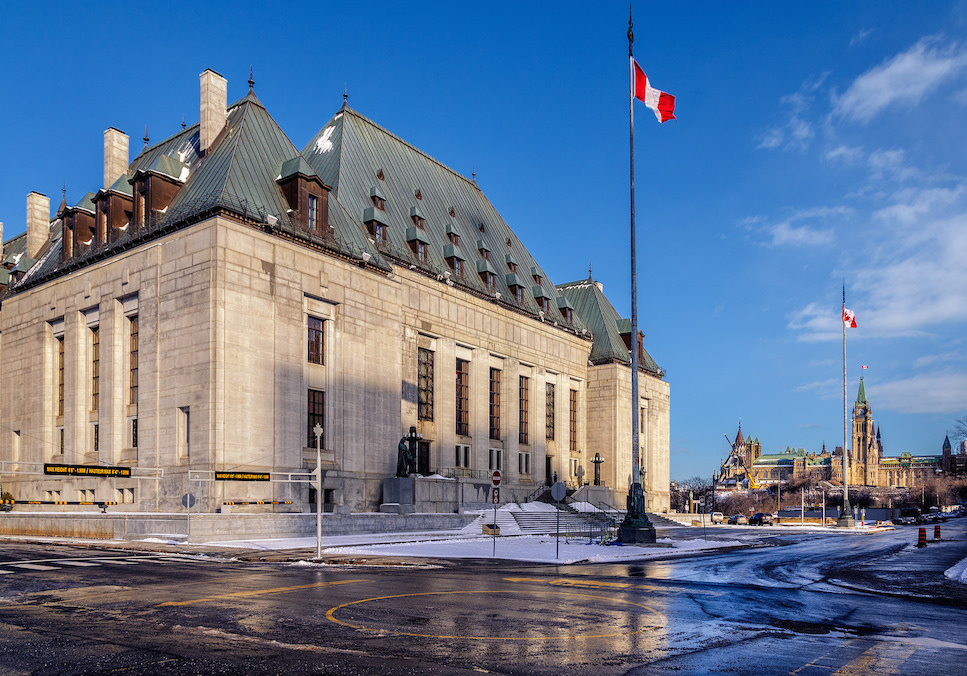In its 5-2 decision this morning, the Supreme Court ruled in Orphan Well Association, et al. v. Grant Thornton Limited, et al. (better known as the Redwater case, because the bankrupt fossil fuel company in question was Redwater Energy Corp.) that Alberta regulations forcing oil companies to clean up their toxic messes come before the right of bankers and other creditors to collect money they’re owed if the company has declared bankruptcy.
This is a big deal, because if the court had upheld the rulings of the Alberta Court of Queen’s bench and the Alberta Court of Appeal, it would have opened the door to an effective strategy for fossil fuel extraction companies to walk away from the costs of cleaning up after themselves and dump billions of dollars in liabilities into the laps of provincial taxpayers.
Stand by for a veritable tempest from banking, oil industry and conservative quarters, now that the Supreme Court of Canada has ruled bankrupt fossil fuel companies can’t use federal bankruptcy law to walk away from their environmental responsibilities as set out in provincial laws.
If anything eases the intensity of the complaining, it will be the knowledge by all of the usual suspects of how bad that will look given that they all insist the fossil fuel industry is on the whole a good steward of the environment.
Behind the scenes, though, you can count on it that conservative politicians will be renewing their vow to pack the Supreme Court with utopian market fundamentalists if they ever again get the chance.
“The Supreme Court of Canada’s decision on the Redwater case is good news for all Albertans and Canadians,” Edmonton-based Parkland Institute Research Manager Ian Hussey said in an email this morning.
“If the court had ruled the other way, taxpayers would have been unfairly saddled with the substantial environmental liabilities that result from the business activities of industrial corporations, such as oil, gas, and mining companies,” he said. “Instead, the court’s decision affirms the polluter pays principle and signals to the financiers of natural resource corporations that not accounting for environmental clean-up costs is unacceptable and that these costs cannot be downloaded onto taxpayers.”
However, in a news release, the Calgary-based Pembina Institute reminded readers that while the Supreme Court has prioritized environmental cleanup over paying off debt, the decision “does not alleviate broader challenges posed by insolvent operations.”
“While the Supreme Court’s decision ensures bankrupt companies’ remaining assets first go to cleanup, those assets are often insufficient to cover full costs,” wrote Pembina analyst Jodi McNeill. “Canadian taxpayers are already paying billions to clean up former operations.”
“Over the last five decades Alberta’s cleanup obligations have steadily grown, and now include over 80,000 inactive oil and gas wells, facilities, and pipelines as well as 1.4 trillion litres in fluid oilsands tailings” she said. “The Government of Alberta officially estimates it will cost $57 billion to clean up these sites, though there are ongoing concerns about the accuracy of this figure. Conversely, only $1.2 billion is currently held in securities to protect the public.”
Redwater Energy Corp., a small Calgary-based company, went bankrupt in 2015. When Redwater went broke, Alberta Treasury Branches sought to recover its loans. A receiver was appointed, and it argued it should be able to sell Redwater’s best assets while passing off the rest to the industry-funded Orphan Well Association.
Under Alberta’s laws, funds from the sale of Redwater Energy’s assets were supposed to go to the environmental cleanup first, while federal bankruptcy law said creditors had first crack at them.
David Climenhaga, author of the Alberta Diary blog, is a journalist, author, journalism teacher, poet and trade union communicator who has worked in senior writing and editing positions with the Toronto Globe and Mail and the Calgary Herald. This post also appears on David Climenhaga’s blog, AlbertaPolitics.ca.
Photo: Michael Muraz/Flickr
Help make rabble sustainable. Please consider supporting our work with a monthly donation. Support rabble.ca today for as little as $1 per month!




